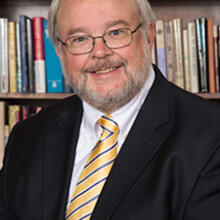Labor Day has traditionally signaled the homestretch for presidential campaigns, but there is nothing traditional about this election.
These are not typical nominees. Hillary Clinton is the first woman and the first former first lady nominated by a major party. Donald J. Trump is a complete outsider, who defeated a dozen governors and senators. They have the worst favorability ratings for presidential candidates in polling history. Most people say Mrs. Clinton is untrustworthy, and two thirds of Americans say Mr. Trump is “not qualified” and lacks the temperament to be president. Conventional wisdom has often been wrong, but it is probably true that the only candidates they could defeat are each other.
Some of the religious dimensions in this demoralizing campaign have been unexpected as well. A recent Pew poll reports that Mrs. Clinton leads Mr. Trump 56 percent to 39 percent among Catholics, who vote for the winner more than other religious groups. Not surprisingly, Hispanic Catholics oppose a candidate who began his campaign by calling Mexican immigrants “rapists and murders,” by 77 percent to 16 percent. In a major change, white Catholics who attend church weekly oppose Trump by 57 percent to 38 percent, a shift of 19 points from their support for Mitt Romney in 2012. Among white Catholics, most Clinton supporters say they are mainly voting to oppose Mr. Trump.
On the other hand, Pew reports that white evangelical voters (but not all evangelical leaders) are more enthusiastic about Mr. Trump than they were about Mr. Romney. He leads 78 percent to 17 percent despite his difficulty expressing his faith, his past support of abortion and his three marriages.
The Republican Party has been the home of the religious right, but Mr. Trump is the most secular nominee in memory. The strong anti-abortion, traditional marriage and religious freedom positions in the party’s platform were missing in his acceptance speech, at the Republican national convention and at his rallies. The Democratic Party position on abortion is increasingly extreme, with the platform now calling for taxpayer funding for elective abortions. The cultural and secular left are dominant Democratic powers, but when the Rev. William Barber and some families of those killed in gun violence raised their voices, the Democratic convention had moments of powerful preaching, prayer and faith-filled witness. It has been an odd summer for religion and politics.
Both vice-presidential nominees come from Catholic families, but have differing relationships to the church and its teachings. Mike Pence says he is “a Christian, a conservative and a Republican in that order.” What he is not anymore is a Catholic. As an evangelical, he consistently opposes abortion but publicly resisted Catholic efforts to welcome Syrian refugees in Indiana. Tim Kaine worships at his mostly African-American Catholic parish and says he learned “the values of faith, family and work” in his service with Jesuits in Honduras. Mr. Kaine says his faith shapes his work on economic and social justice. He also says he is “personally opposed” to abortion, but has a 100-percent rating from the abortion lobby. These two leaders express the complexity and contradictions of Catholic witness in public life.
I learned at an early age that Catholics express their faith in differing ways and parties...and that is true this year as well. I am a product of a mixed marriage. Both my late parents were Minnesota Catholics, but my mother and her family were active Republicans. My dad and his family were diehard Democrats. My mom started a pro-life pregnancy center and would be a Paul Ryan Republican. My dad was a populist who would have “felt the Bern.” Neither would have adopted the unfortunate “I’m with Her” Clinton slogan. But this year my mother would have been appalled by Mr. Trump’s attacks on a Gold Star mother, refugees, John McCain and a reporter with disabilities. She would be unconvinced of his recent pro-life conversion. My dad would have opposed the extreme abortion policies in his party’s platform and Mrs. Clinton’s ties to Wall Street and her vote for the Iraq war. But I believe both of them—for very different reasons—would have been among the majority of church-going Catholics in the Pew survey who reject Donald Trump. They also would have reminded us to pray for our country at this time of testing on who we are, what we believe and what we will become as a nation.








